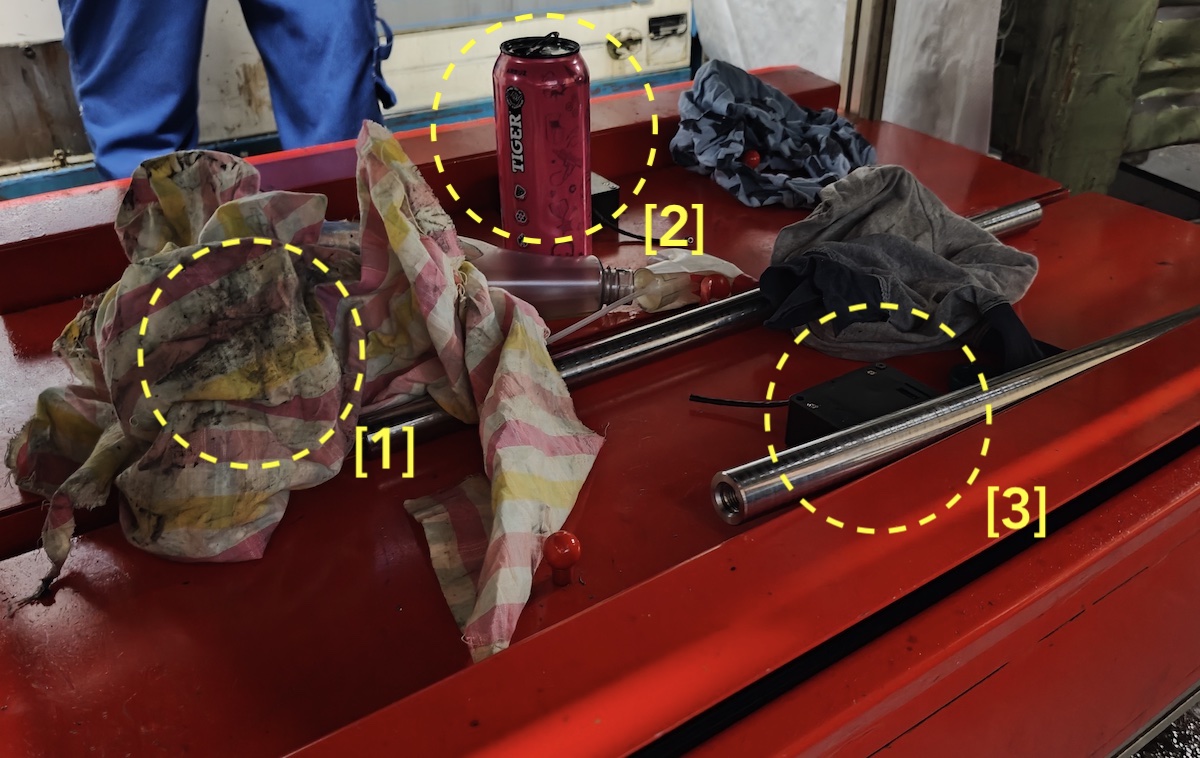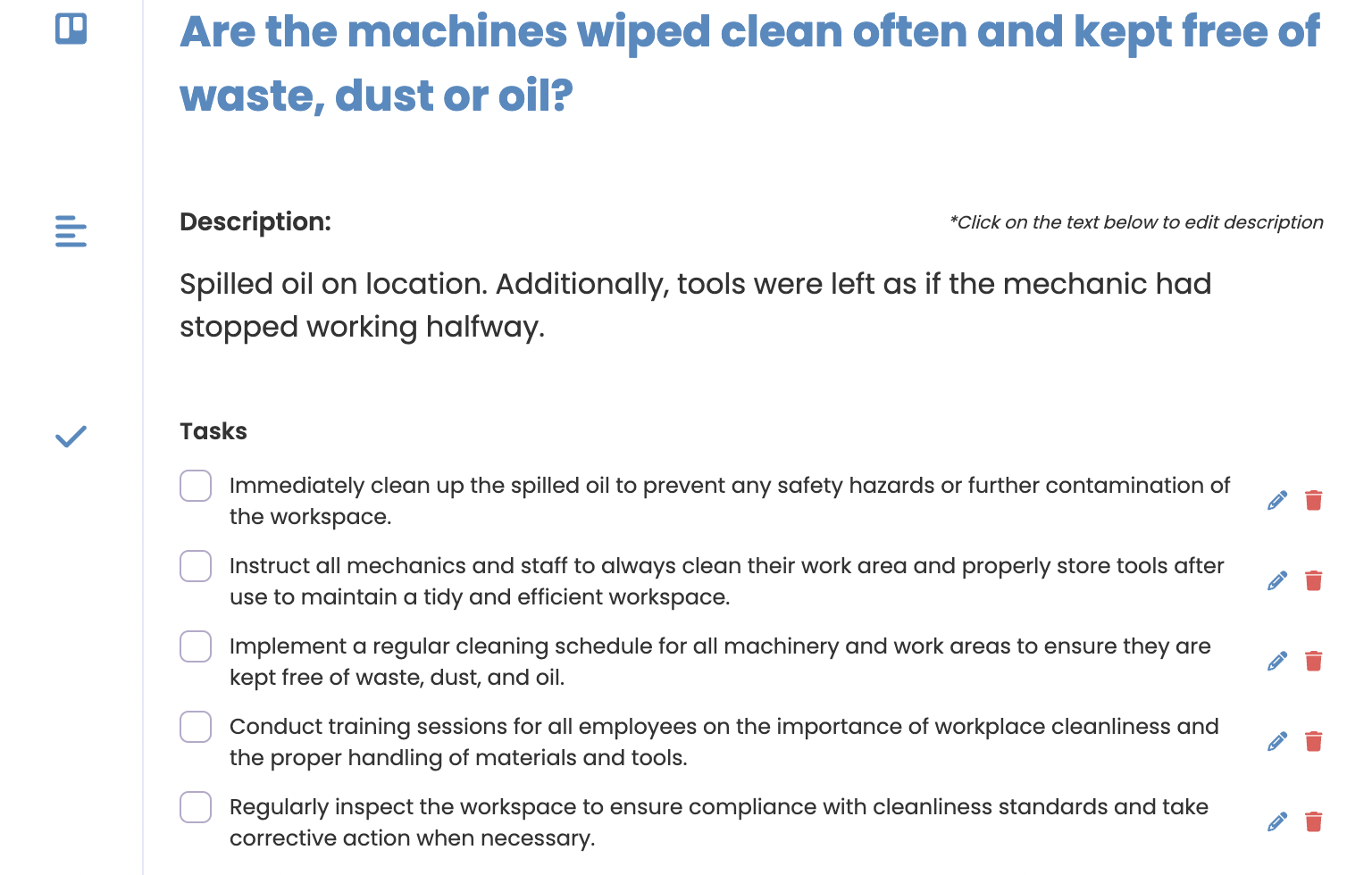5 Areas in Which AI Will Change the Work of the Auditor
Alex Niemczyk
—
10/29/2024
Artificial intelligence evokes a wide range of emotions and perspectives on the future-from enthusiastic visions of total revolution to fears of an impending cataclysm. Some argue that this technology will transform every aspect of our daily lives, changing not only how we live but also how we perceive reality. Others believe it’s merely a passing trend that will fade, leaving only a marginal impact.
Personally, I fall into the camp of optimists. I believe AI will not only remain with us but will also transform significant sectors of the economy and daily life, reshaping reality for both individuals and businesses. Those who master its use may gain an advantage comparable to the disruptive technologies of past eras: firearms for warriors, automobiles for travelers, and industrial machinery for workers. The world in which AI becomes an integral part of everyday work is already beginning to emerge - also in fields requiring data analysis, precision, and a deep understanding of processes, such as the profession of an auditor.
In the following sections, I’ll discuss how, in my opinion, this technology will impact auditors, supporting their work in ways that were recently unimaginable.
1. Audit Planning and Scheduling
One of the key responsibilities of the role we call Audit Manager at Action Audit is planning audits, which involves considering many factors, including standard guidelines, production schedules, absences, and customer requirements. Traditionally, this process demands manual management of various factors such as resource availability, process complexity, and past audit results. AI can greatly simplify, speed up, and automate this process.
Artificial intelligence can automatically analyze data from production systems, audit history, and current conditions to create an optimal audit schedule.
AI can even take this a step further by dynamically adjusting audit plans. For example, by analyzing historical issues and current performance, AI can identify which audit areas require immediate attention and which can be audited later. This helps auditors manage their resources and time more effectively, focusing on the most critical aspects of production facility operations.
2. Identifying Non-Compliance and Partial Automation of Audits
In manufacturing, audits often involve analyzing process compliance with standards, verifying product quality, and ensuring adherence to other guidelines and standards. This often requires manual review of documentation, on-site inspections, and data verification, which are tasks where it’s easy to overlook serious non-compliance. AI can partially automate this process, enabling faster and, above all, more accurate identification of non-compliance.
The mobile application Action Plan Pulse offers an intriguing and innovative feature in this area, helping auditors identify non-compliance based on audit questions and images taken on-site before the auditor even submits their notes.

For example, in the image above, artificial intelligence identified the following issues based on a carefully prepared prompt:
[1] Dirty rags: There are dirty, used rags on the workbench, which could be a source of contamination. They should be properly stored or removed after use.
[2] Open drink can: The visible drink can on the table is unrelated to work and may introduce contamination risks. Additionally, a spilled drink could pose a safety hazard.
[3] Disorganized tools: Various tools and other items are scattered on the table, unorganized. This clutter can pose an accident risk and hinder efficient task completion.
In addition, appropriate corrective actions were suggested.
As we can see, using AI during an audit can significantly increase its speed and accuracy.
3. Suggesting and Addressing Post-Audit Corrective Actions
After an audit, one of the auditor’s key tasks is recommending corrective actions to address identified issues. Traditionally, this requires a thorough analysis of processes and available resources to propose the best solutions. AI can substantially support auditors in this part of their work by quickly suggesting both immediate corrective actions and long-term improvement processes.
Based on historical data related to corrective actions in similar situations, AI can propose specific remedial solutions. For instance, if an audit reveals quality issues with a particular product, AI might suggest actions such as adjusting machine parameters, optimizing quality control processes, or providing additional training for operators.
Action Audit also offers a solution that supports auditors and management teams in addressing corrective actions. For example, all actions shown in the image below were proposed by AI within a few seconds.

4. Data Analysis and Drawing Conclusions
In a factory, management and auditors must continuously analyze data related to quality, process efficiency, and compliance with standards—a significant challenge given the volume of available data. AI can significantly speed up and streamline the analysis process.
AI algorithms can process vast amounts of data in real time, identifying patterns that may indicate quality or operational issues. For example, AI can analyze production machine data and relate it to findings from audits, predicting potential failures or quality incidents, allowing preventive actions before problems affect product quality. In audit data analysis, AI can automatically identify recurring issues in production processes, helping auditors make recommendations for continuous improvement.
5. Auxiliary Tools
In working with production companies, we’ve frequently encountered challenges associated with globalization and collaboration within international teams, where not all members are fluent in English.
As a result, one of the most useful tools for supporting auditors’ work has proven to be an AI-powered checklist translator based on the GPT language model.
Beyond translation, artificial intelligence provides a range of additional tools that are already supporting auditors or are set to become crucial in the near future, including:
- Automated generation of reports, summaries, and analyses
- Knowledge management and compliance trend analysis
- Intelligent notifications
These tools not only accelerate auditors’ daily tasks but also enable more precise monitoring of processes and compliance, resulting in a higher quality and efficiency level in audit management.
Summary
In summary, artificial intelligence holds tremendous potential to fundamentally change the way auditors perform their work. Considering the possibilities AI offers, it’s fair to say that while auditors currently work with shovels, they will soon be in the driver’s seat of excavators, with audit productivity, efficiency, and quality poised to grow exponentially.
When developing Action Audit, our goal is always to provide users with the best and most convenient tools that not only facilitate auditors' work but also give the entire company a competitive edge. Thus, leveraging the possibilities of AI remains a top priority in our efforts to enhance auditors’ everyday work.
